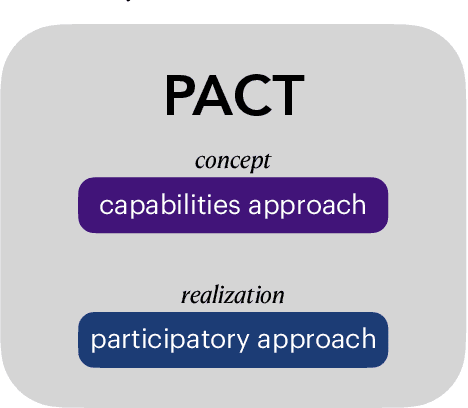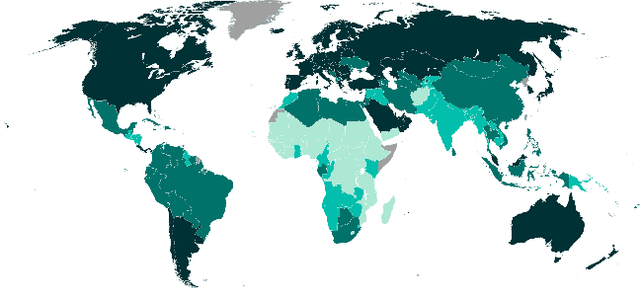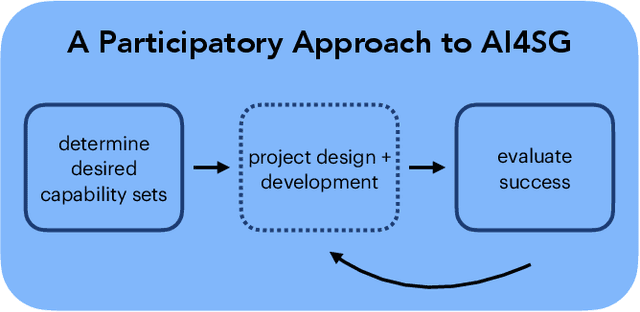Envisioning Communities: A Participatory Approach Towards AI for Social Good
Paper and Code
May 04, 2021



Research in artificial intelligence (AI) for social good presupposes some definition of social good, but potential definitions have been seldom suggested and never agreed upon. The normative question of what AI for social good research should be "for" is not thoughtfully elaborated, or is frequently addressed with a utilitarian outlook that prioritizes the needs of the majority over those who have been historically marginalized, brushing aside realities of injustice and inequity. We argue that AI for social good ought to be assessed by the communities that the AI system will impact, using as a guide the capabilities approach, a framework to measure the ability of different policies to improve human welfare equity. Furthermore, we lay out how AI research has the potential to catalyze social progress by expanding and equalizing capabilities. We show how the capabilities approach aligns with a participatory approach for the design and implementation of AI for social good research in a framework we introduce called PACT, in which community members affected should be brought in as partners and their input prioritized throughout the project. We conclude by providing an incomplete set of guiding questions for carrying out such participatory AI research in a way that elicits and respects a community's own definition of social good.
 Add to Chrome
Add to Chrome Add to Firefox
Add to Firefox Add to Edge
Add to Edge